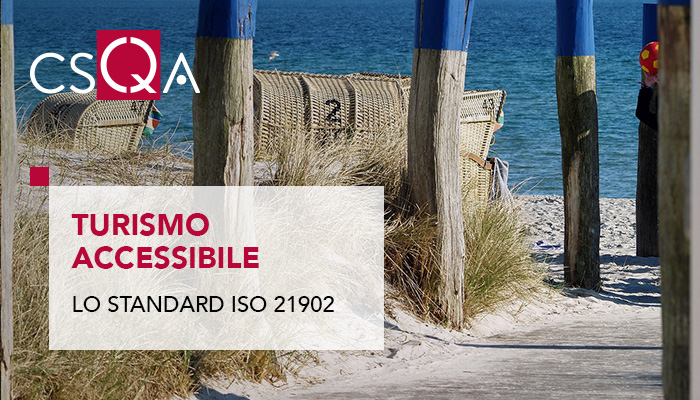
Tourism is one of the fastest growing sectors of the global economy .
An estimated 1.4 billion people are traveling around the world. The sector is responsible for 1 in 11 jobs globally.
However, travel can be a challenging process along the entire tourism chain for the 15% of the world's population living with some form of disability and for people with entry requirements.
An improvement in accessibility in the tourism sector would also benefit older people, especially considering that the percentage of people over 65 is set to increase from 9% (2019 data) to 16% in 2050. (Source: Reports of the UN Commission on Population and Development).
People with disabilities or other access requirements can face physical, sensory, cognitive and cultural barriers in the tourism sector and in many destinations. When searching for suitable tourist places and services, it can be difficult to find clear and precise information on the accessibility of the offer, services or destination structure. This situation can be improved by applying more consistent rules and better training of tourism professionals.
There are documents (eg codes, standards and guides) which outline recommendations and requirements for some key aspects of accessibility in different environments and services. Furthermore, there are also standards that refer to Universal Design for transport services and workplaces, without taking into account the fundamental aspects of travel and tourism . However, the existing rules have gaps and can differ between countries and even between different regions of the same country. This can generate unrealistic expectations about the accessibility of the services and facilities that the visitor expects to find at the destination.
Most studies on accessible tourism have shown that one of the major difficulties in applying the rules is the lack of knowledge on the part of tour operators about existing tools and possible solutions . There is a lack of information on where to find guidance and there may be contradictions between the information contained in the different standards of different countries and regions, while in some countries there are no standards available. Furthermore, tour operators find it difficult to proceed in situations for which international standards have not yet been adopted.
ISO 21902 establishes requirements and provides guidelines for “accessible tourism for all” with the aim of ensuring equitable access to and enjoyment of tourism by the widest range of people of all ages and abilities.
The standard provides information on key aspects of policies, strategy, infrastructure, products and services and is aimed at all stakeholders involved in the tourism supply chain, both public and private. It applies locally, regionally, nationally and internationally. (Source: https://www.uni.com/ )